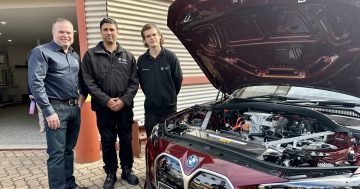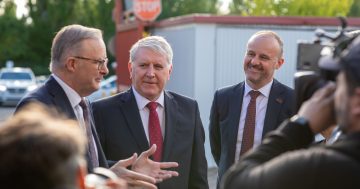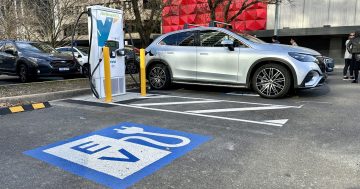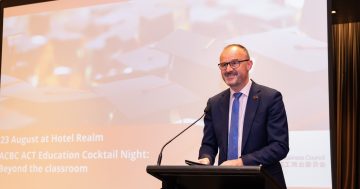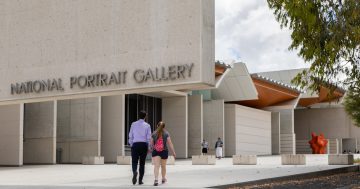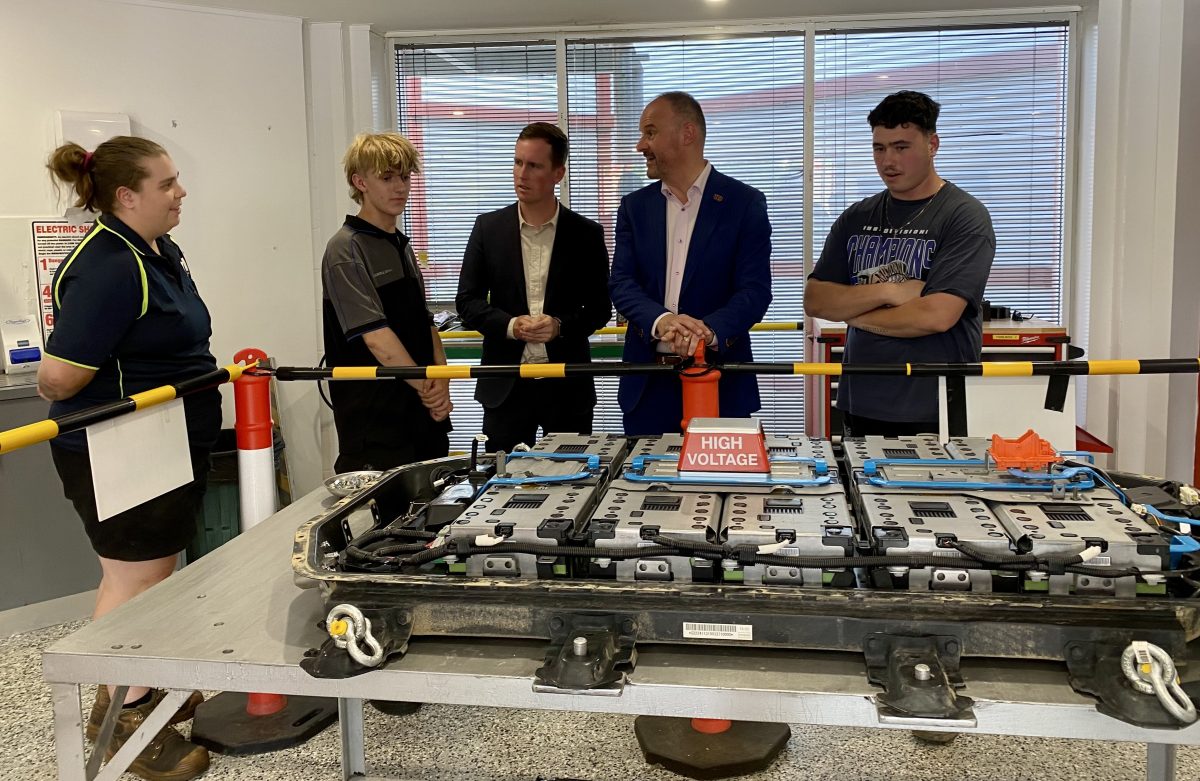
Half a million dollars will be spent looking at how to expand electrotechnology offerings at CIT’s Fyshwick campus, including its EV training centre. Photo: Claire Fenwicke.
The ACT Government wants to secure the Capital as the nation’s leader in electric technologies, negotiating with the Commonwealth to set up a new centre of excellence in Fyshwick.
The National Skills Agreement was struck last year and $24 million was promised to the ACT to build training in critical sectors.
The proposal would see most of that money go into the centre and expand CIT’s electric vehicle (EV) training centre to train more EV automotive technicians and support the electrification of the Territory.
The remaining cash would be injected into Canberra’s cybersecurity space, with a separate proposal currently being worked on with the ACT Cyber Hub.
Skills Minister Chris Steel said the CIT’s campus was the “obvious” choice to offer electrotechnology training for the nation.
“We have people coming from interstate, all of Tesla’s apprentices nationwide are flying in, flying out to undertake training here at CIT, and we want to expand that offering to include other qualifications – electrotechnology, battery-to-grid, and also focusing on the continued expansion of our electric vehicle [training] offering,” he said.
“The ACT is a perfect place to be able to lead the nation and share knowledge with the rest of the country and other TAFEs through a centre of excellence.”
The changing nature of vehicles in the ACT attracted Canberrans Suraj Ghimire and Hugo McNeil to CIT’s EV training centre.
Both are first-year EV mechanic students, managing to secure apprenticeships with BMW as they’re studying.
Hugo said the growing popularity of EVs both in the Capital and across the nation made it a sensible choice to pursue.
“There aren’t many people in the course or have even been fully qualified yet, so it’s something new to get into,” he said.
Suraj agreed, expecting the technology to change even more rapidly in the near future.
“After a couple of years, maybe within five years, I think the whole dynamics will change. There will be more EV cars, and maybe hydrogen will come later,” he said
“But we need the manpower to fill that gap, so I see the future and that’s why I joined the course.”
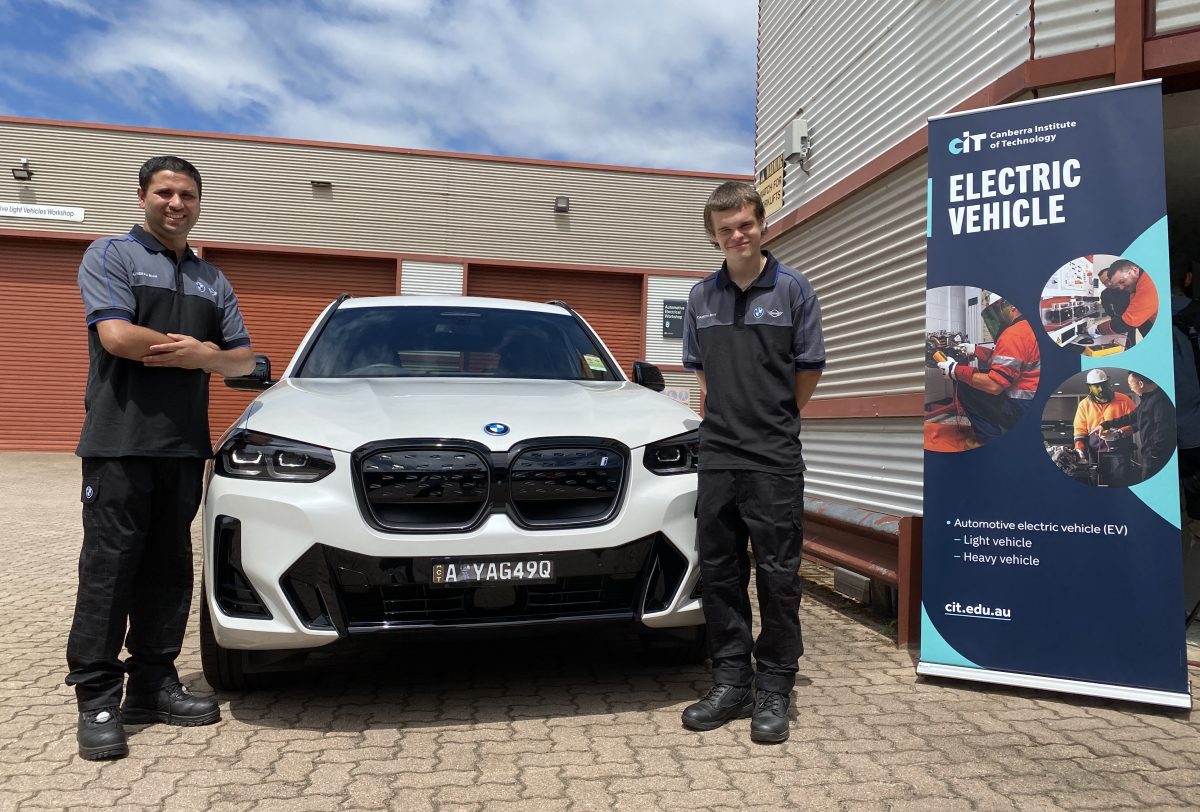
CIT first-year students Suraj Ghimire and Hugo McNeil could see the skills gap for EV cars and so are getting the training they need to be part of the growing industry. Photo: Claire Fenwicke.
Chief Minister Andrew Barr said education was one of the ACT’s largest exports, so combining that with an objective that ticked environment and skills boxes was a no-brainer.
“So you get a skills and training outcome, you get an economy outcome and you get a climate outcome. Putting those three together makes this a very, very important investment,” he said.
Course placements for EV automotive technicians are at capacity at CIT and hundreds of people are on the waitlist.
ACT Government modelling shows at least 1280 additional electricians and 270 more electrical engineers will be needed in the Territory to meet growing demand before the electrification deadline of 2045.
A key challenge is that not only are these electricians and engineers needed, but also the teachers to train them.
The government is looking at ways to entice experienced electricians to down tools and become educators, including helping pay for their accreditation to teach. Finding enough businesses to host apprentices will also be a challenge.
In response, the ACT Government has announced $500,000 over two years to scope and design a Future Energy Skills Hub at the CIT Fyshwick campus.
The Hub would primarily focus on the electrical trades to combat local and national skills shortages and explore a skills pathway to support those working in the gas industry.
“The money that we’re announcing will support the start of that transition [to electrification], not just with electricians but all of the other skills where we even may need to develop brand new qualifications to support the energy transition,” Mr Steel said.
“The economy is electrifying and this is going to create new jobs that require new skills, as well as the re-skilling and upskilling of some existing workers.
“The humble sparkie will be at the centre of this energy revolution.”












